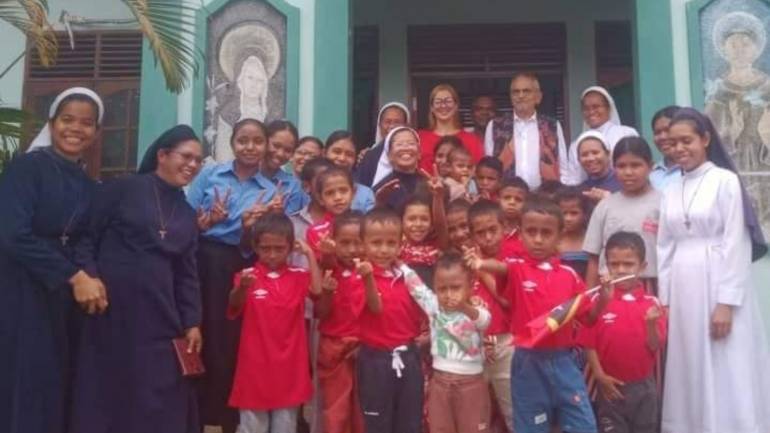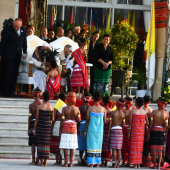East Timor president visits St. Clara orphanage in Dili

East Timor President José Ramos-Horta visited St. Clara, an orphanage operated by the Franciscan Sisters of the Sacred Hearts of Jesus and Mary (FCJM) in Ailoklaran Village, Bairopite Post Administrative, Dili Municipality, on July 26.
The purpose of his visit was twofold: to meet with the orphaned children and to distribute essential supplies to the facility.
During his visit, President Ramos-Horta interacted with the children and the nuns, observing the facility's operations firsthand.
The primary focus of his visit was the delivery of necessities to the Franciscan Sisters of the FCJM, who manage the orphanage.
The donated supplies are intended to enhance the orphanage's capacity to care for the children and meet their daily needs.
This visit reflects the president's initiatives to support vulnerable populations in Timor-Leste, a country where 97% of the population identifies as Catholic and 99% as Christian.
The FCJM congregation, founded by Mother M. Clara Pfaender (1827–1882) in Germany on October 30, 1860, works in health and education ministries across Europe, Africa, the Americas, and Asia.
In Asia, the nuns have been active in Indonesia since 1930, growing from five initial members to becoming an independent province of the Congregation in 1989.
The Sisters expanded their mission to East Timor in 1988 at the invitation of the Bishops' Conference of East Timor.
Pope Francis is scheduled to visit East Timor in September, along with stops in Singapore, Indonesia, and Papua New Guinea, further highlighting the significance of the region and the important work being done by religious communities like the FCJM.
Radio Veritas Asia (RVA), a media platform of the Catholic Church, aims to share Christ. RVA started in 1969 as a continental Catholic radio station to serve Asian countries in their respective local language, thus earning the tag “the Voice of Asian Christianity.” Responding to the emerging context, RVA embraced media platforms to connect with the global Asian audience via its 21 language websites and various social media platforms.














